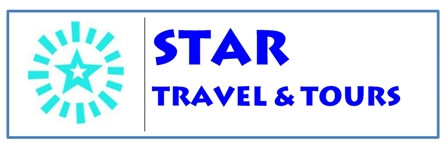FAQs

Visas, inoculations and insurance: Please check with your doctor what vaccinations are required or recommended for your intended travel destinations.
Our safari prices do not include the cost or provision of visas, inoculations or personal insurance.
Accommodation: If visiting the major towns, a wide variety of guest houses, hostels as well as 3, 4 and 5 star hotels are available for your choosing. On safari, accommodation is usually in lodges, luxury tented lodges or tented camps. The first two offer most facilities such as a lounge, bar, dining room, swimming pool and shop. Most have en-suite bathrooms. Tented camps are often situated in more remote locations and provide only basic facilities. Toilets and bathrooms are usually shared.
Bed & Breakfast: This accommodation plan means that the price paid includes the cost of room and breakfast the next morning. All Nairobi hotels offer services on this basis.
Half Board: Half board accommodation plan means that the price given covers the cost of room, breakfast and either lunch or dinner. Most coastal hotels offer services on this basis.
Full Board: This plan covers room, breakfast, lunch, afternoon tea and dinner. On safari, full board will usually include all the above as well as game drives and park entrance fees. All lodges and tented camps offer services on this basis.
Airport departure taxes: For domestic flights within Kenya, airport departure tax is US$ 3.00. For international departures the tax is US$ 20. Cash in Kenya shillings and most foreign currencies is acceptable. In Tanzania and Zanzibar, International departure tax is US$20 per person.
Baggage: Standard airline baggage restrictions apply. For safaris, baggage may be restricted to one medium size suitcase and hand luggage per person, especially if the vehicle(s) is full. Some facilities only allow an overnight bag (such as Treetops and the Ark). For groups, separate luggage vans may be allocated to transport guest luggage. However, luggage storage facilities are widely available in most Nairobi hotels.
Clothing: Clothing should be practical, comfortable and informal. Lightweight cotton clothing such as shirts, shorts, trousers or skirts are ideal on safari, while a warm sweater or jacket (and socks!) may be needed for those early morning game drives and cool Highland evenings. It is unlikely that Jacket and tie will be needed except at one or two of the Nairobi restaurants or for visitors on business. Bring your swimwear, sunhat, sunscreen, sunglasses, a small flashlight (torch), alarm clock and comfortable, dust-proof shoes.
Electricity: The electrical supply in Kenya is 240volts. British 3 pin sockets are used. Adapters are usually available in most lodges and hotels.
Vaccinations: Malaria preventives are necessary in this part of the world, so please obtain and follow up administration according to your doctor's instructions. Yellow fever and Cholera vaccination cards are required for visitors arriving from infected areas. It is highly recommended that you consult your own doctor appropriate updates and advise regarding areas of your intended travel.
Check-in/ check-out times in hotels/lodges: In most lodges and hotels, check out time ranges between 1000Hrs and 1100Hrs. Check ins are usually scheduled from 1300 - 1400 hours onwards. Special arrangements may be made with individual hotels/ lodges for earlier or later check-in/out. Day rooms can also be arranged for a fraction of the cost of regular room rate. Early morning check-ins may pre-book rooms from the previous night for the convenience of the guests.
Laundry: Most hotels and lodges offer laundry services as well as shoe cleaning.
Food: A wide variety of local and is available in Kenya.
Money
Credit cards, Travelers' checks or Cash. Take travelers cheques in US$ or other hard currency. These can be changed into the local currency as required. Do not carry large amounts of cash.
Photography: Bring plenty of film with you. It is available locally but rather expensive and in outlying lodges may be out of date. Telephoto lenses (minimum 200mm recommended) are a must for wildlife photography. Other useful items include filters, dustproof bags and, of course, spare batteries. Home video cameras may be brought in but professional filming is subject to Government permits and levies. Binoculars are an invaluable aid to spotting those distant animals or birds.
Single rooms: There is always a strong demand for accommodation on safari and occasionally the lodges or camps cannot provide single rooms, even when booked and confirmed. In this case only the applicable single supplement paid will be refunded to the client.
Telephones: All Nairobi and most Coast hotels have international dial facility from your bedroom. On safari this is unusual but in some lodges and camps calls may be booked through reception. Check prices before making calls from hotels.
Transport: Road safaris - Transport on road safari is by 9-seat minibus, carrying a maximum of 7 passengers, each with a seat by a window and opening roof hatch for easy game viewing. All safari vehicles carry a cool-box, binoculars and wildlife reference books. Our Connoisseur safaris and fly-in safaris all include a proportion of game viewing in 4 wheel drive vehicles. These are normally operated by the camp or lodge. The vehicles carry a maximum of 7 persons and have opening roof hatches. Game drives on private farms and ranches are often conducted in fully open 4 wheel drive vehicles. Flying Safaris - Transport on flying safaris utilizing scheduled flights is by twin-engine aircraft of 4 - 50 seats.
